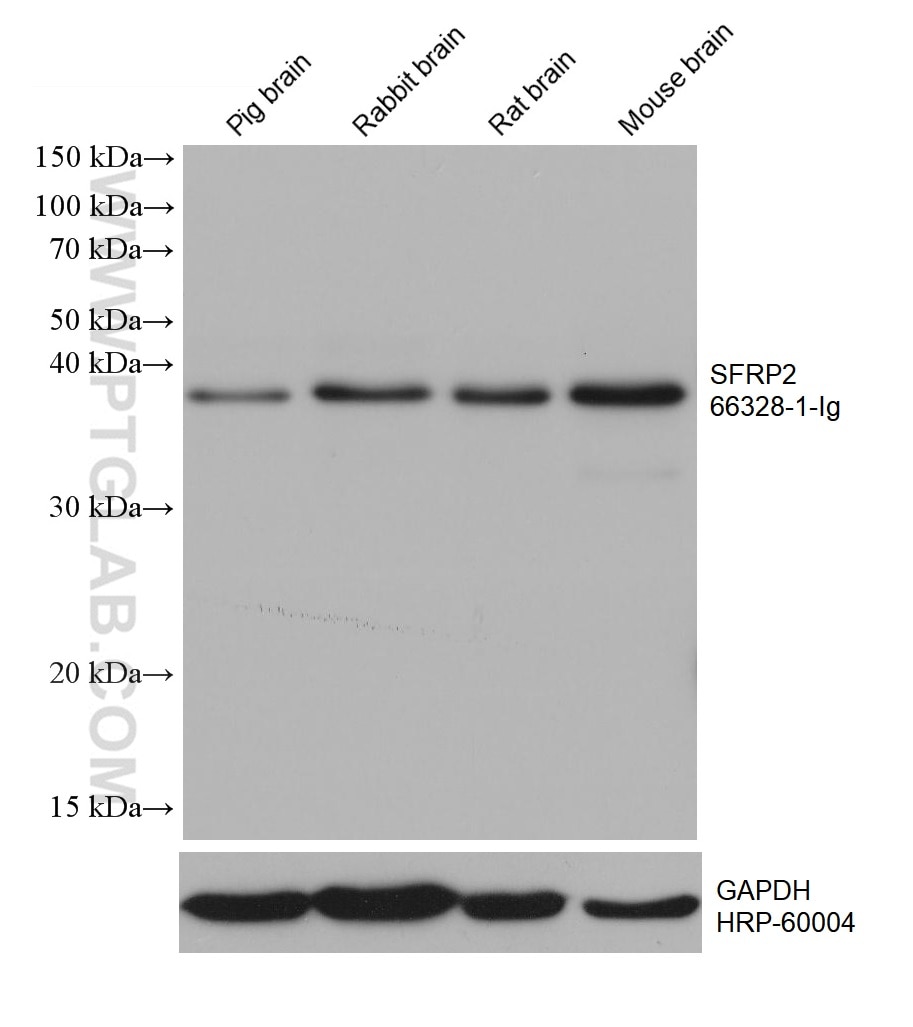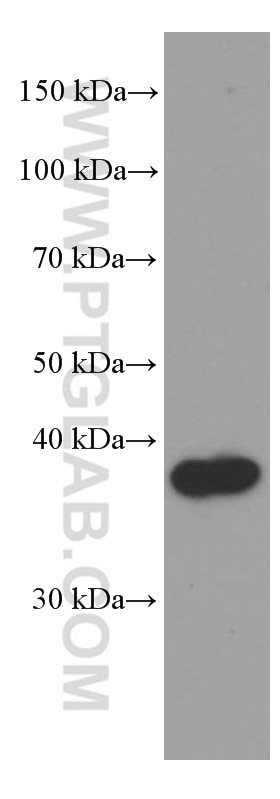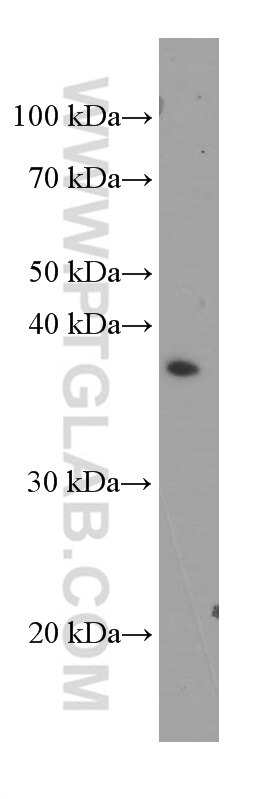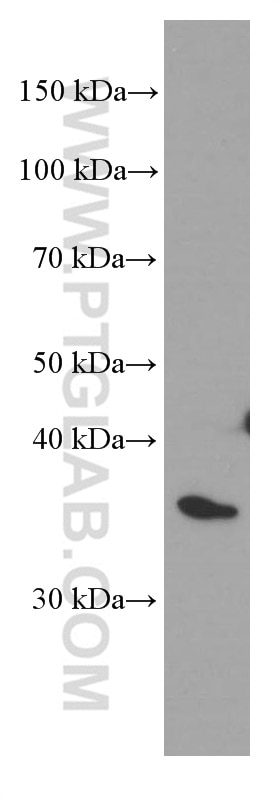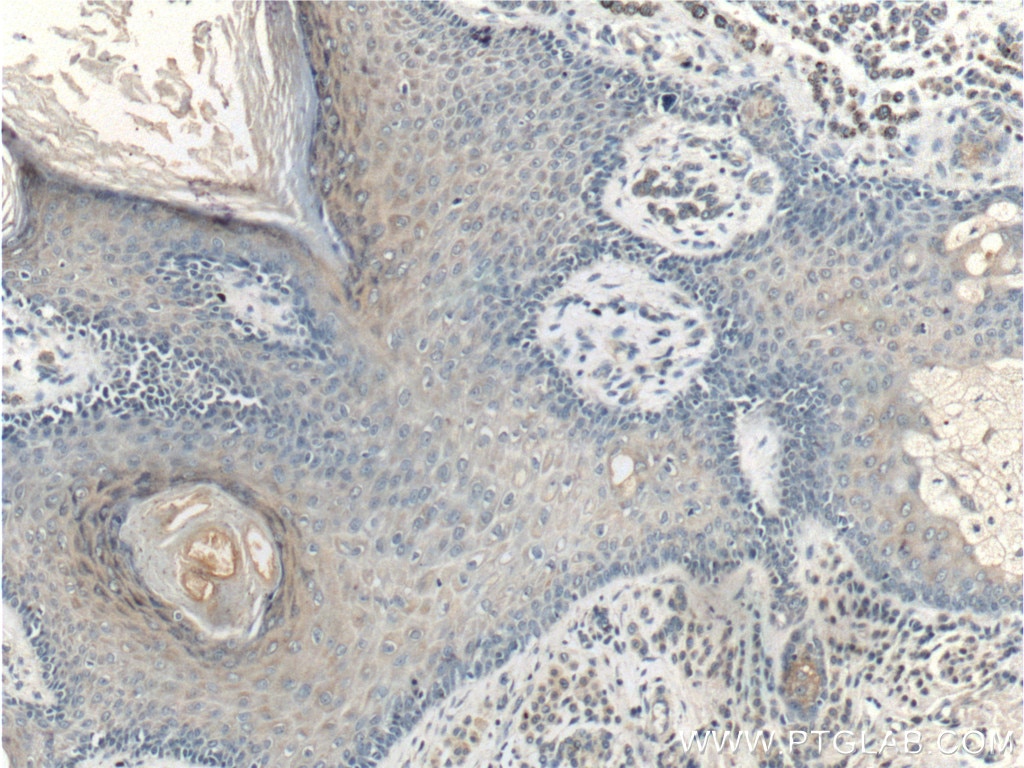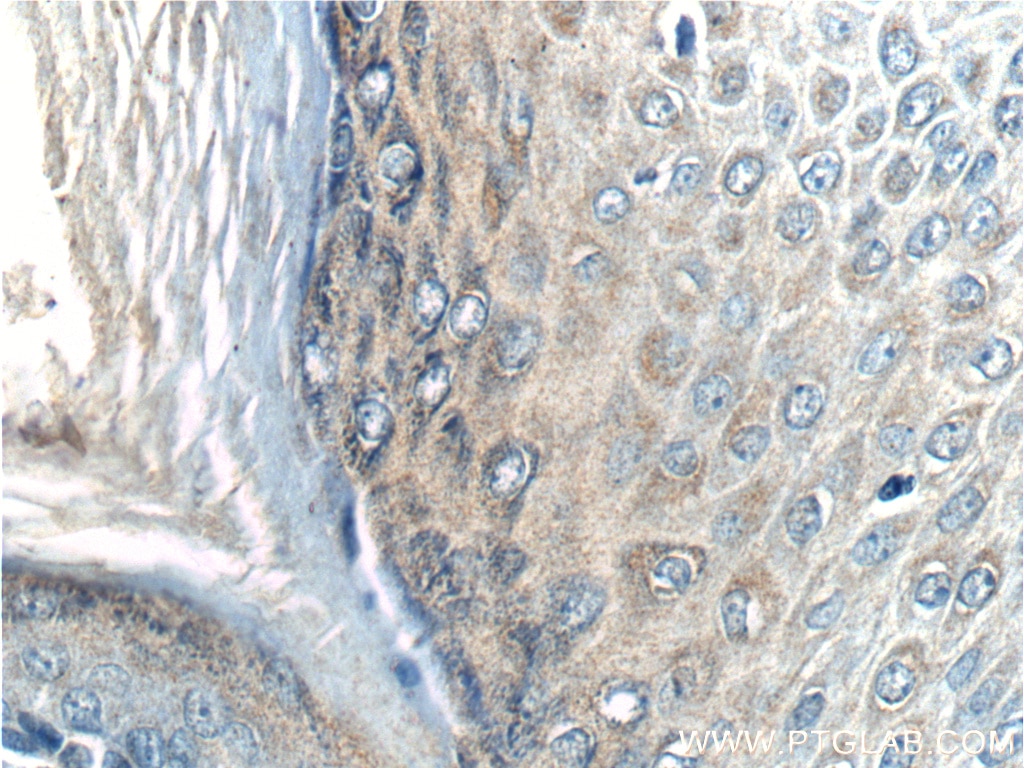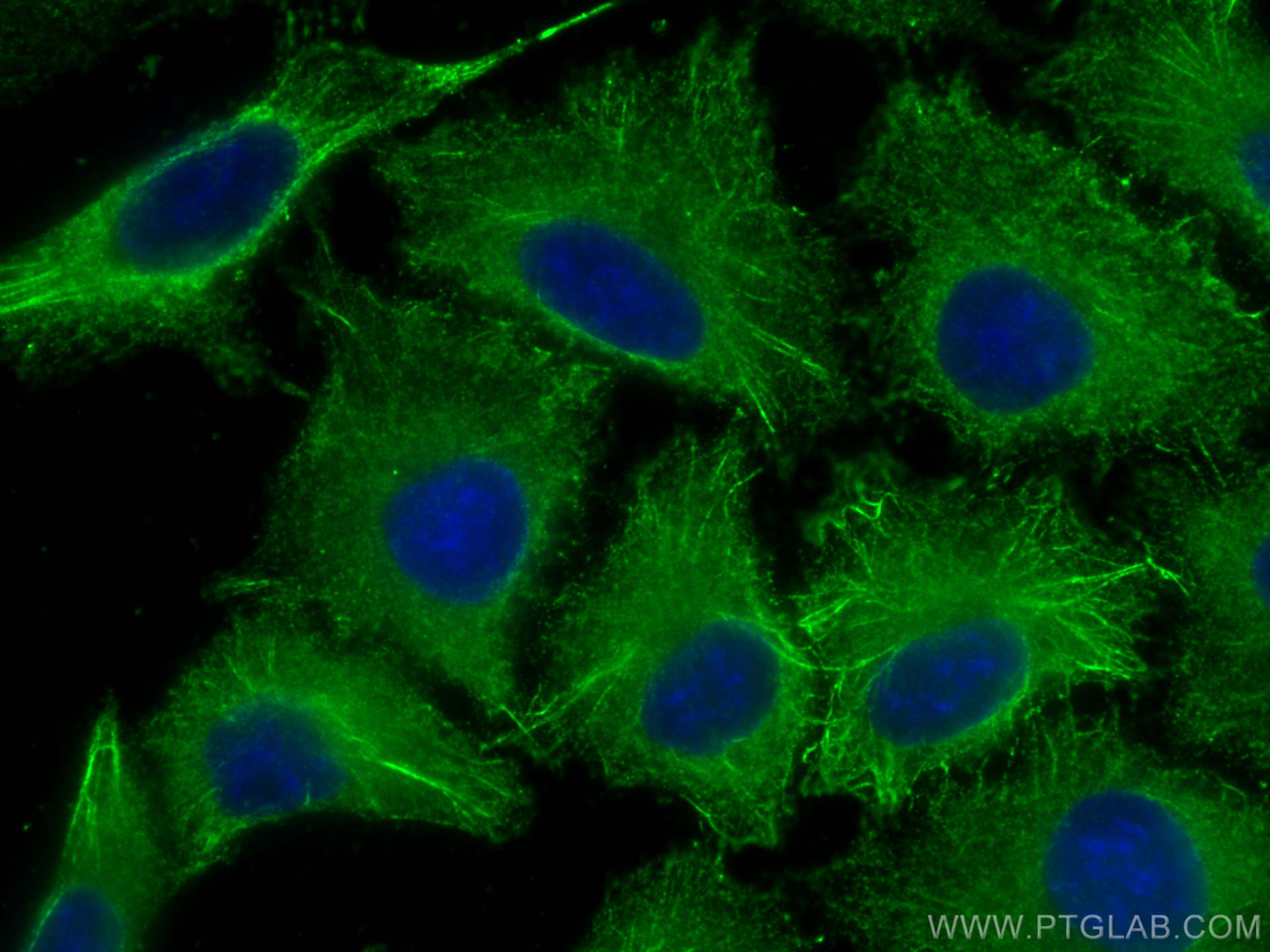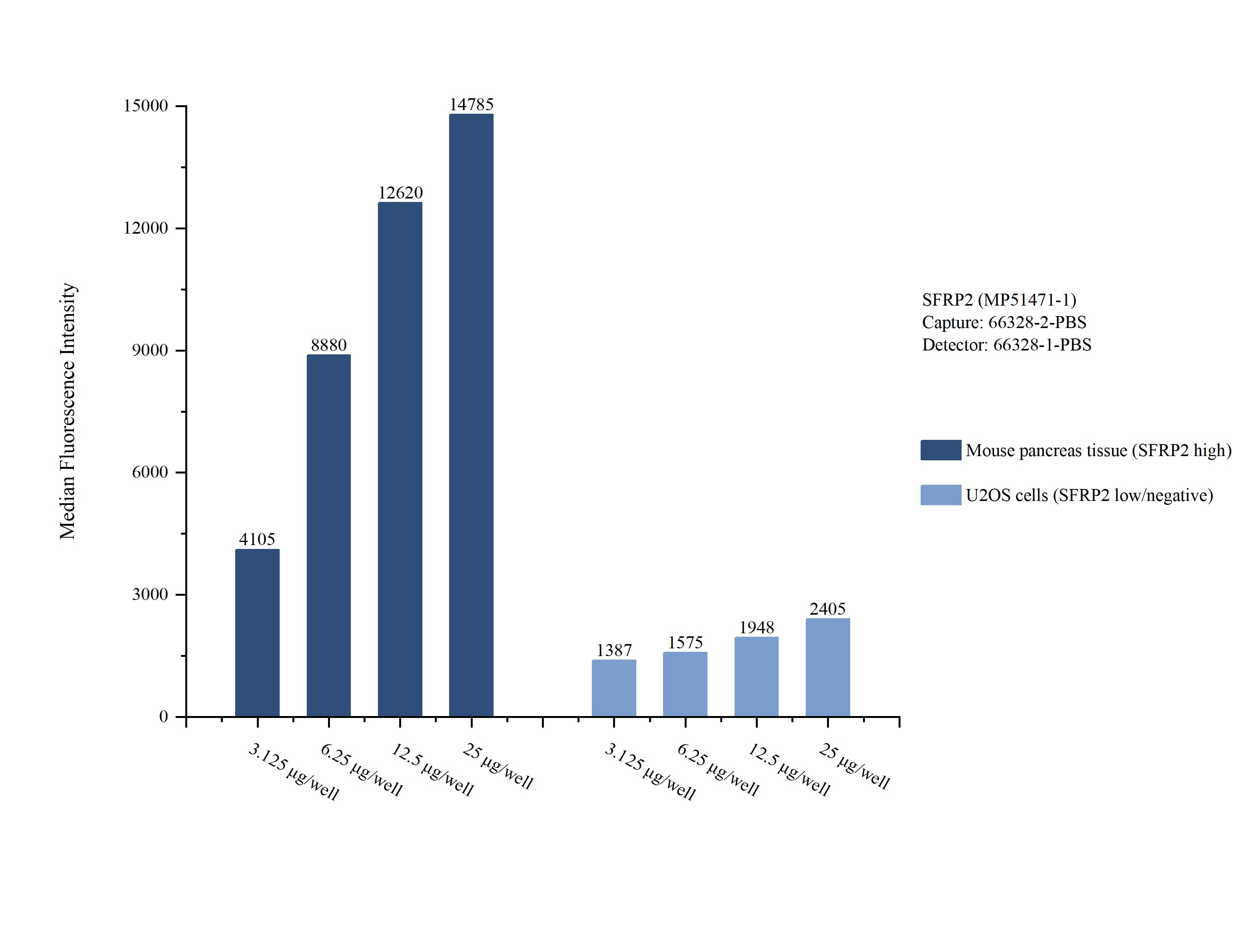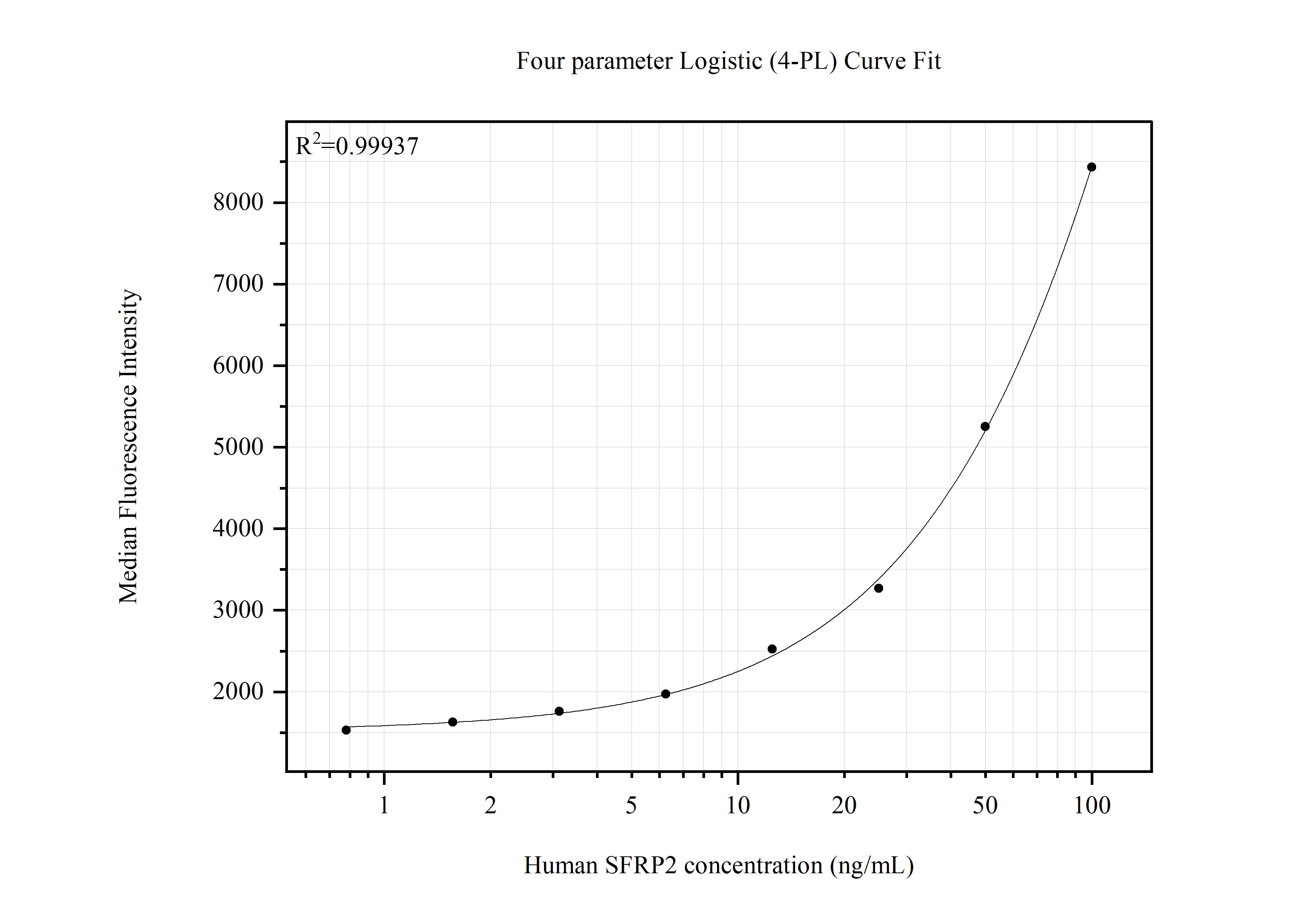Product Information
66328-1-PBS targets SFRP2 as part of a matched antibody pair:
MP51471-1: 66328-2-PBS capture and 66328-1-PBS detection (validated in Cytometric bead array)
Unconjugated mouse monoclonal antibody pair in PBS only (BSA and azide free) storage buffer at a concentration of 1 mg/mL, ready for conjugation.
This conjugation ready format makes antibodies ideal for use in many applications including: ELISAs, multiplex assays requiring matched pairs, mass cytometry, and multiplex imaging applications.Antibody use should be optimized by the end user for each application and assay.
| Tested Reactivity | human, mouse, rat, pig, rabbit |
| Host / Isotype | Mouse / IgG1 |
| Class | Monoclonal |
| Type | Antibody |
| Immunogen |
CatNo: Ag18840 Product name: Recombinant human SFRP2 protein Source: e coli.-derived, PET28a Tag: 6*His Domain: 1-295 aa of BC008666 Sequence: MLQGPGSLLLLFLASHCCLGSARGLFLFGQPDFSYKRSNCKPIPVNLQLCHGIEYQNMRLPNLLGHETMKEVLEQAGAWIPLVMKQCHPDTKKFLCSLFAPVCLDDLDETIQPCHSLCVQVKDRCAPVMSAFGFPWPDMLECDRFPQDNDLCIPLASSDHLLPATEEAPKVCEACKNKNDDDNDIMETLCKNDFALKIKVKEITYINRDTKIILETKSKTIYKLNGVSERDLKKSVLWLKDSLQCTCEEMNDINAPYLVMGQKQGGELVITSVKRWQKGQREFKRISRSIRKLQC Predict reactive species |
| Full Name | secreted frizzled-related protein 2 |
| Calculated Molecular Weight | 295 aa, 34 kDa |
| Observed Molecular Weight | 38 kDa |
| GenBank Accession Number | BC008666 |
| Gene Symbol | SFRP2 |
| Gene ID (NCBI) | 6423 |
| RRID | AB_2881709 |
| Conjugate | Unconjugated |
| Form | Liquid |
| Purification Method | Protein A purification |
| UNIPROT ID | Q96HF1 |
| Storage Buffer | PBS only, pH 7.3. |
| Storage Conditions | Store at -80°C. |
Background Information
Secreted frizzled-related protein 2 (Sfrp2) is a secreted glycoprotein molecule containing an N terminal cysteine-rich domain, which is typically 30-50% identical to the putative Wnt-binding site of the frizzled receptor, and a C terminal heparin-binding domain with weak homology to netrins. It has been implicated in diverse cellular processes, including embryogenesis, regulation of cell apoptosis, and cell differentiation. Methylation of this gene is a potential marker for the presence of colorectal cancer.

